W FEWORK
FEWORK
WHAT MARRIAGE REALLY MEANS FOR WOMEN
SUSAN MAUSHART
BLOOMSBURY
Copyright 2001 by Susan Maushart
All rights reserved. No part of this book may be used or reproduced in any manner whatsoever without written permission from the Publisher except in the case of brief quotations embodied in critical articles or reviews. For information address Bloomsbury, 175 Fifth Avenue, New York, N.Y. 10010
Published by Bloomsbury, New York and London
Distributed to the trade by Holtzbrinck Publishers
The Library of Congress has cataloged the hardcover edition as follows:
Maushart, Susan, 1958
Wifework: what marriage really means for women/ Susan Maushart
p. cm.
Includes bibliographical references ([254]-266) and index.
eISBN: 978-1-59691-952-5
1. Wives. 2. Marriage. 3. Divorce. I. Title.
HQ759 M3944 2002
306.872--dc21
2001052662
First published in Australia by The Text Publishing Company, Melbourne, in 2001 First U.S. Edition 2002
This paperback edition published in 2003
10 9 8 7 6 5 4 3 2 1
Typeset by Palimpsest Book Production Limited, Polmont, Stirlingshire, Scotland Printed in the United States of America by R.R. Donnelley & Sons Company, Harrisonburg, Virginia
for Karen
'Only she who says
She did not choose, is the loser in the end.'
Adrienne Rich
contents
'Wife: 1. a. A woman: formerly in general sense; in later use restricted to a woman of humble rank or "of low employment".' Oxford English Dictionary
In many languages, there is a single word for 'wife' and 'woman'. Perhaps we should be thankful that English is no longer one of them. Somewhere in the last quarter-century, the term 'wife' has lost its neutrality. Once a simple descriptor of a woman's marital status, the word today evidently means a whole lot moreand a whole lot lessthan it did a generation or two ago. Even sociologists and demographers speak of 'married women' or 'female partners', as if 'wife' were a four-letter word best left unspoken in polite company.
Many married women today actually shun the designation 'wife'. They fantasise about acquiring a wife, not becoming one. 'Well, I'd have another wedding,' one divorced woman explained, 'but next time around I'd make sure I married someone who didn't want a wife.' I'd wager that 99 per cent of ever-married women know exactly what she meansand that a similar proportion of ever-married men wouldn't have a clue.
Wives, it seems, have gone the way of patterned lino, fondue pots and ironed sheetsa cultural collectable now viewed with amused disdain. 'Take my wife...please!' went the old gag. It used to make husbands laugh until they were weak. Yet somewhere in the last few decades, it seems somebody has taken her.
We hear a lot these days about the breakdown of the family. We've been hearing it for a long time now. In the US, the divorce rate now exceeds 50 per cent; in the UK it is only slightly under that figure. Even in conservative Australia, 43 per cent of all marriages end in divorce. In raw figures, that's 50,000 divorces a yearcarrying an estimated price tag of six billion dollars in court, health and social security costs.
And yet social researchers, with apparent seriousness of purpose, continue to struggle with the question of whether marriage still 'works'. Maybe it's just habit. Books with titles like The Future of Marriage or (more ominously) The End of Marriage have been pouring from both academic and popular presses for decades. They all seem to conclude the same way: acknowledging that there are 'difficulties', yet ultimately promising 'real change'.
Such faith is touching. It is also a little puzzling. As social critic Dalma Heyn observes in her book Marriage Shock, any other social institution with a track record this dismal would have been dismantled long ago. Imagine a public-school system in which half the students dropped out. Or a justice system in which a third of law-breakers could be counted on to re-offendor in which a third of juries handed down demonstrably false verdicts. Imagine a health-care system that disabled four in ten of its users, or an institution of higher learning rendering half of its graduates unemployable for life. For a society to tolerate such obvious inefficiencies and ineptitudes would seem unthinkable. Yet when it comes to marriage, we are willing, even eager, to make exceptions. Why?
Why do we remain agnostic on the question of whether we 'believe in' marriage? Why, despite an avalanche of evidence for the prosecution, do we remain reluctant to convict?
The reason, I have become convinced, is quite simple. As everybody knows, marriage works for some people, but not for others. It follows logically that we can't really analyse 'marriage' until we know whose marriage we're talking about. Yet by that I do not mean the Smiths' marriage versus the Joneses', or the Finkelsteins' versus the Fongs', or a 'good' marriage versus a 'bad' one.
I mean His marriage versus Her marriage. The husband's marriage versus the wife's.
We can't make up our minds about marriage because we have not yet acknowledged that these two versions of the one relationship are fundamentally and perhaps irreconcilably divergent. And, more to the point, we have not yet acknowledgedperhaps not even to ourselvesthat His marriage still works. And Hers doesn't.
It was the noted American sociologist Jessie Bernard who first articulated the concept of the two marriages. 'Anyone...discussing the future of marriage has to specify whose marriage he is talking about: the husband's or the wife's,' she observed. 'For there is by now a very considerable body of well authenticated research to show that there really are two marriages in every marital union, and that they do not always coincide.' Bernard wrote those words almost thirty years ago. Today, of course, we live in a different world. Today, they almost never coincide.
Ironically, our belief that the two marriages should coincide, indeed that they must do so, has grown ever stronger. Our new egalitarian convictions have made it even harder to penetrate beyond the veil, as it were. Both males and females in our society publicly profess their dedication to the ideal of what social researchers call 'companionate marriage'a covenant between two equally loving and nurturant partners, in which the divisions of labour and leisure are negotiated rationally, equitably and, above all, without reference to gender.
But when a woman marries, what she sees is not what she gets. The exterior architecture of the contemporary marriage emphasises fluidity, simplicity and light. No wonder it's got such fantastic street appeal. Venture inside, however, and you're in for a nasty shock. Notwithstanding the tastefully renovated facade, the interior of today's marriages remains as dusty, cramped and overelaborated as a Victorian drawing-room. It looks awful. And it feels worse. Is it really so surprising that so many of us eventually pack up and leave that houseeven if it renders us literally homeless to do so?
Look closely at the facts surrounding so-called family breakdown and a surprising pattern emerges. The edifice that's crumbling is not really 'marriage' at all. Being married is not the problem. Nor is being a parent, or at least not in the same way. The problem is being a wife.
Everyone knows the divorce rate in our society has skyrocketed, but few realise that two-thirds to three-quarters of those divorces are initiated by women. The inescapable conclusion is that women are more dissatisfied within marriage than men. Perhaps even more telling, the vast majority of divorced womenmore than eight in ten, according to Australian Institute of Family Studies researchers Irene Wolcott and Jody Hughesreport having no regrets about their choice. Psychologically. Spiritually. Even physically.
Next page
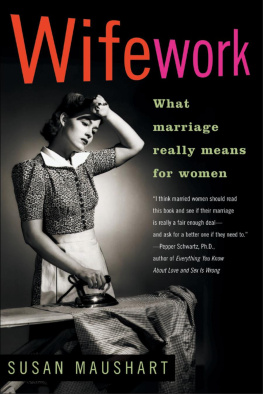

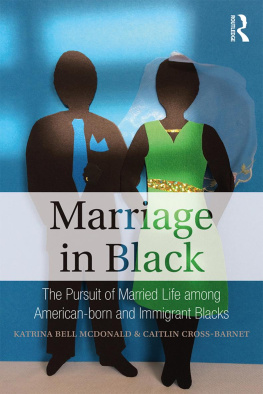


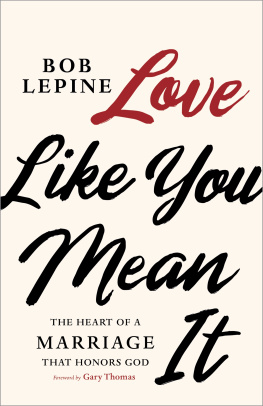
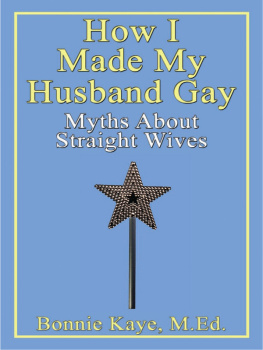

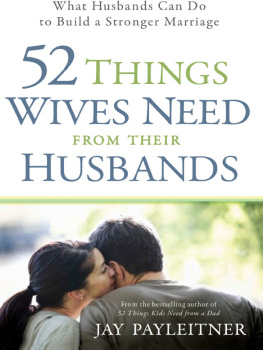
 FEWORK
FEWORK